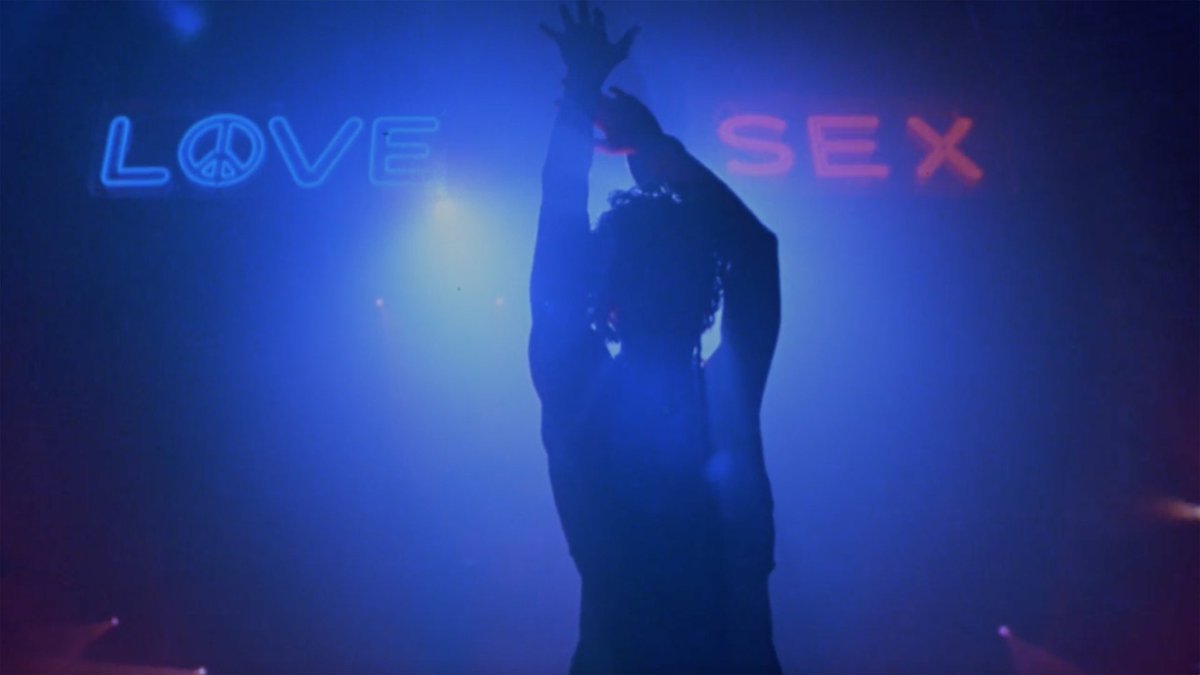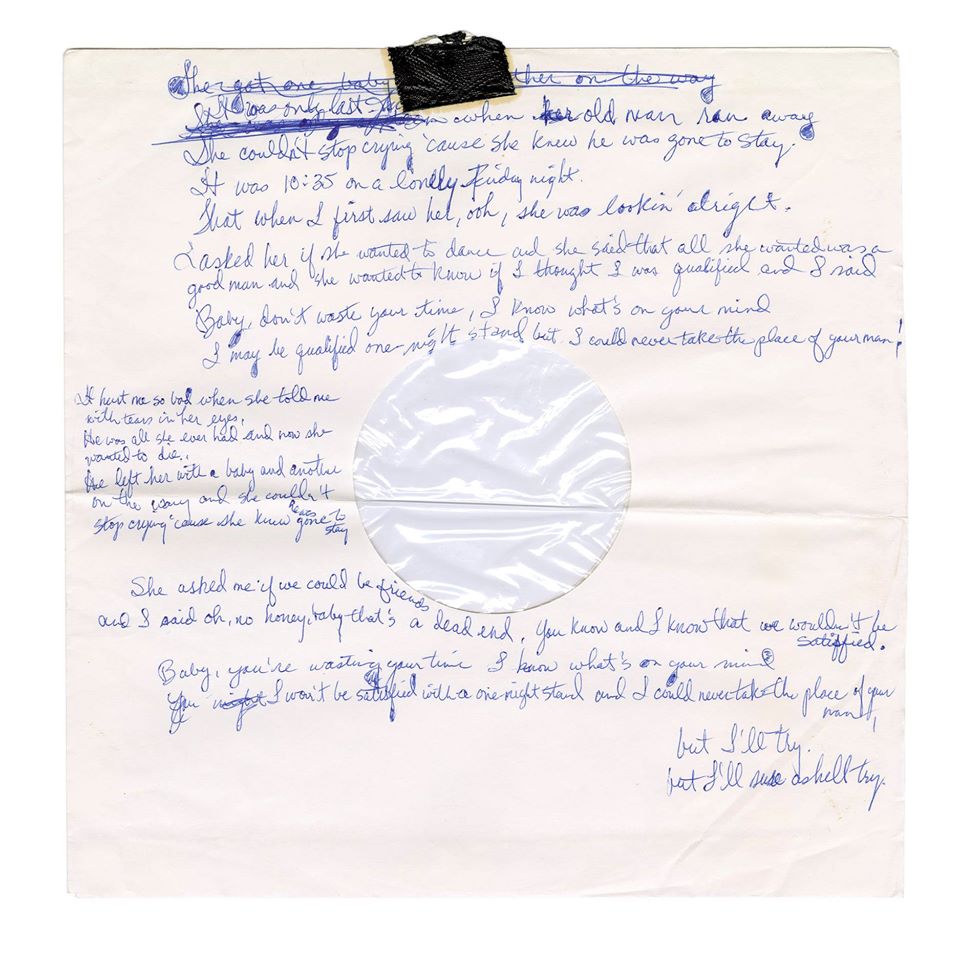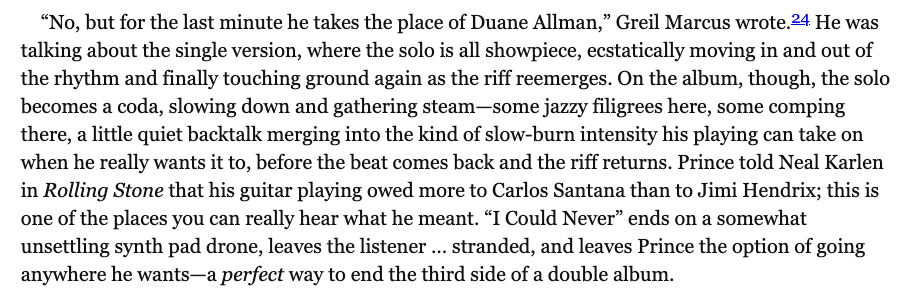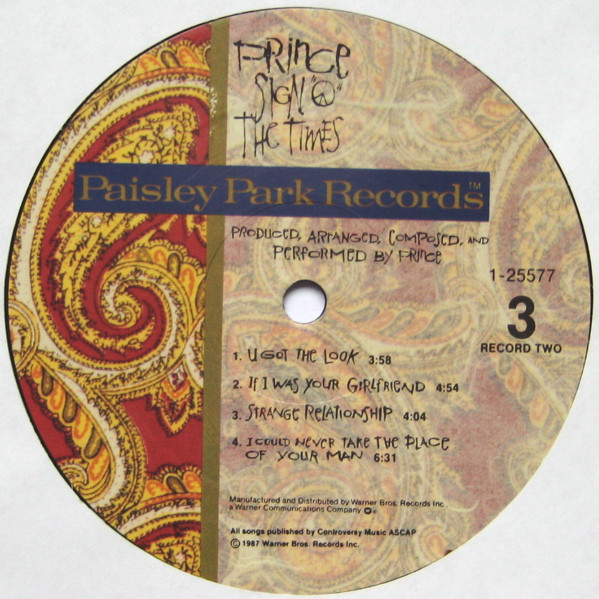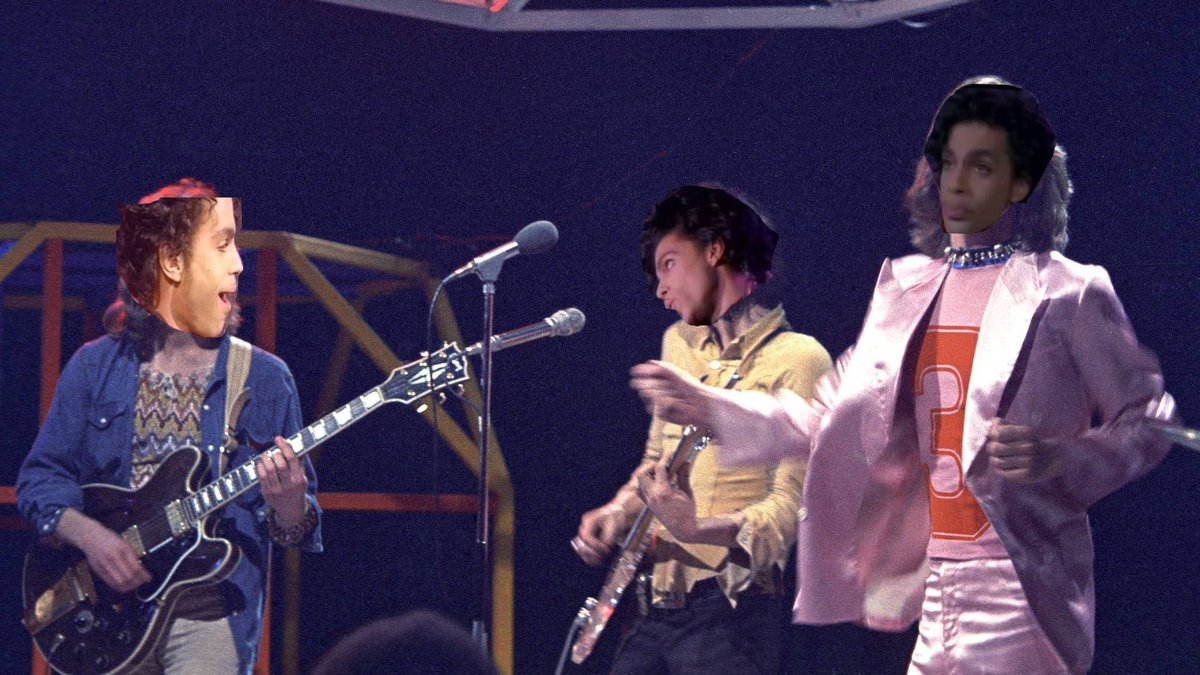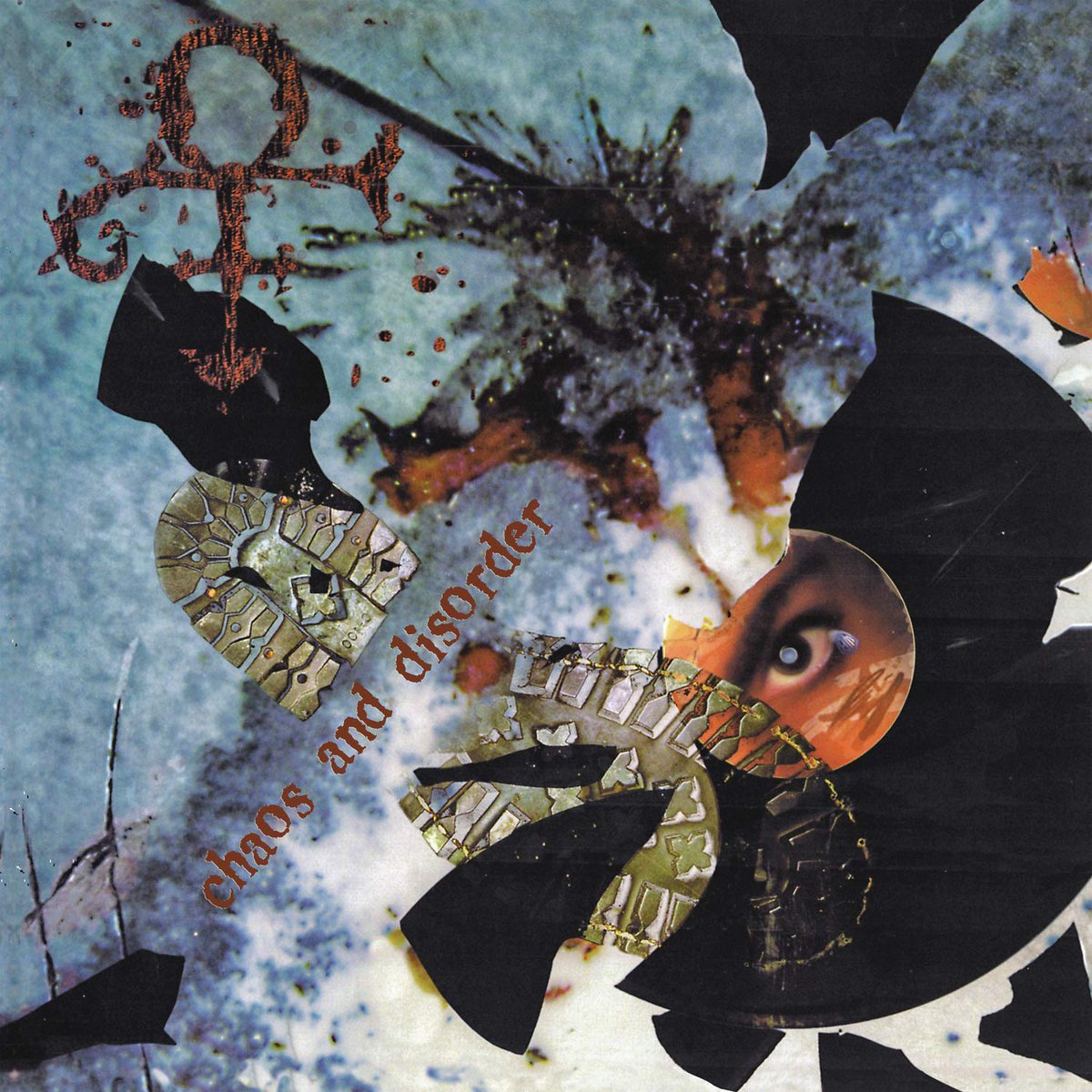Hello! My name is Zachary Hoskins (long-time #PrinceTwitterThread listener, first-time caller), and today it is my pleasure to talk about Side 3, Track 4 of #SOTTDeluxe: “I Could Never Take the Place of Your Man.”
To begin, thanks so much to @deejayumb and @EdgarKruize for inviting me to participate. Every single thread so far has been a blast to read, and it’s an honor to be a part of this illustrious crew.
In his thread last week, @8minutesidle summarized the theme of SOTT Side 3 as “Psychosexual Drama.” This rings true, especially with the double whammy of “If I Was Your Girlfriend” and “Strange Relationship” at its center. https://twitter.com/8minutesidle/status/1318290693706612738?s=20">https://twitter.com/8minutesi...
“ICNTTPOYM” is also a kind of psychosexual drama, but in a less overt way: it’s a song about Prince (or a character he closely resembles) torn between immediate sexual gratification and long-term emotional consequences (screencap lifted w/gratitude from @deejayumb’s thread)
Several critics at the time took “ICNTTPOYM,” together with “The Ballad of Dorothy Parker,” as evidence of his growing maturity as a lyricist: imagine, not one but TWO songs where Prince is intimate with a woman, without being “intimate” with her! https://gph.is/2SPYK2u ">https://gph.is/2SPYK2u&q...
In the New York Times, for example, Jon Pareles wrote that Prince “used to show contempt for his conquests,” but now he “hints at more responsible hedonism - refusing to take advantage of a lonely woman.” https://www.nytimes.com/1987/04/12/arts/recordings-prince-brews-up-a-more-danceable-album.html">https://www.nytimes.com/1987/04/1...
Even more to the point was the Village Voice’s Robert Christgau (he of “Mick Jagger should fold up his penis and go home” fame): “The objects of his desire are also objects of interest, affection, and respect. Some of them he may not even fuck.” https://www.robertchristgau.com/get_album.php?id=2806">https://www.robertchristgau.com/get_album...
Of course, as we now know, Prince actually wrote “ICNTTPOYM” years *before* a lot of those less “mature” songs. That’s a thread for another day, but here’s the blog post I wrote on the release of the 1979 version this summer. https://princesongs.org/2020/07/21/i-could-never-take-the-place-of-your-man-1979-version/">https://princesongs.org/2020/07/2...
For the record, I do think “ICNTTPOYM” is “mature”--just maybe not in the way Pareles, Christgau, et al. were thinking.
Lyrically, it’s a well-crafted story-song--something Prince excelled at--but I don’t find the same level of literary sophistication in it that I find in “Little Red Corvette” or even “When You Were Mine,” let alone its album-mate “Dorothy Parker.” https://genius.com/Prince-i-could-never-take-the-place-of-your-man-lyrics">https://genius.com/Prince-i-...
To be honest, it’s a bit of a melodrama. Just look at the situation the female protagonist is in: her “old man” left her with not just one baby, but “another one on the way.” Now that he’s gone, “she want[s] to die.” Subtle, it’s not. https://gph.is/2CdwL7j ">https://gph.is/2CdwL7j&q...
A close look at the lyrics in the #SOTTDeluxe booklet tells us that they used to be even more dramatic. The opening line Prince originally wrote (and crossed out) was, “She was only fifteen when her old man ran away”--so, a suicidal teen mom, twice over.
Basically, if Prince and I were taking a creative writing class together and I was assigned to peer-review these lyrics, I’d suggest he take it down just a notch. Maybe he just leaves her with the one baby? I dunno. ¯\_(ツ)_/¯
But anyway, if it isn’t the lyrics that make “ICNTTPOYM” “mature,” what is it? I’d argue it’s the performance, which feels to me like Prince fully stepping into what, in 1987, had only recently been dubbed the “classic rock” canon. https://gph.is/2SMfKGB ">https://gph.is/2SMfKGB&q...
Obviously Prince was no stranger to the rock anthem at this point--we’re all familiar with a little song called “Purple Rain”--but he was still primarily considered a pop artist. His perceived peers were Madonna and Michael Jackson, not Patti Smith or Neil Young.
But the album version of “ICNTTPOYM” feels like an Important Rock Song, in a way that’s distinct from both the lighter-waving grandiosity of “Purple Rain” and the Van Halen-esque guitar theatrics at the end of “Let’s Go Crazy.”
https://media.giphy.com/media/4Zvtc5OSUFaLkByqHV/giphy.gif">https://media.giphy.com/media/4Zv...
https://media.giphy.com/media/4Zvtc5OSUFaLkByqHV/giphy.gif">https://media.giphy.com/media/4Zv...
For one thing, it’s six and a half minutes long. It can’t be contained by a 7” single or the three-minute standard for commercial radio--always a plus for rock “seriousness.” And at the point when the single edit fades out, we get this abrupt tonal shift: ">https://youtu.be/HJDPR4_bd...
It’s a stark contrast from the more buoyant, melodic (i.e., “pop”) guitar solo we just heard. To be extremely reductive, the first solo is the Knack’s “My Sharona”; the second, which plays throughout this extended coda, is Santana’s “Black Magic Woman.” https://youtu.be/9wT1s96JIb0 ">https://youtu.be/9wT1s96JI...
Here’s Michaelangelo Matos on the two solos, from his 33⅓ book on Sign “O” the Times. Note that even the aforementioned first solo was compared by Greil Marcus to Duane Allman--high praise in rock-crit circles.
And note, too, how Matos concludes the passage: the album version of “ICNTTPOYM” is album rock par excellence, engineered specifically to close out a side of vinyl (the third side of a double album, no less).
I can’t seem to pin down the first person to make this comparison, but the coda of “ICNTTPOYM” recalls another side-closer by that most classic of “classic rock” bands, the Rolling Stones. Listen to this side by side with the earlier excerpt: ">https://youtu.be/Gz5mI6tqm...
It’s worth noting that the Stones achieved this shift with two guitarists: Keith Richards takes the heavier riff in the first part of the song, while Mick Taylor takes the moodier solo on the coda. Prince, meanwhile, is both Keith and Mick (and the other Mick) in this scenario.
But I digress. There’s a reason why I’ve been putting all these scare quotes around words like “serious,” “important,” and “mature”: simply put, it’s now widely accepted that the hierarchies implicit in rock-centric music criticism are deeply subjective, and mostly bullshit.
Today, an artist like Prince would be (and is!) evaluated positively because of his “pop” qualities, not in spite of them. But in 1987, “rockism” (see link) was still the dominant mode for popular music criticism. https://www.nytimes.com/2004/10/31/arts/music/the-rap-against-rockism.html">https://www.nytimes.com/2004/10/3...
Remember that in early 1988, Sign “O” the Times would lose Album of the Year at the Grammy Awards to U2’s more conventionally “important” rock album, The Joshua Tree (to Prince’s palpable thrill in the gif below).
https://64.media.tumblr.com/5687de0a099cb0c60ab2b3990d3a8bd7/tumblr_nkpttqFdZA1tmhlrwo1_400.gif">https://64.media.tumblr.com/5687de0a0...
https://64.media.tumblr.com/5687de0a099cb0c60ab2b3990d3a8bd7/tumblr_nkpttqFdZA1tmhlrwo1_400.gif">https://64.media.tumblr.com/5687de0a0...
And I think it’s interesting to note that for the rest of his career, Prince largely abandoned the rockist sensibilities of “IWNTTPOYM.” His next few albums would focus on more emergent, cutting-edge sounds: house and other electronic dance music, New Jack Swing, and hip-hop.
Even when he did record a “rock” album, like 1996’s Chaos & Disorder, it wasn’t designed with rock listeners or critics in mind--nor did it resonate with them.
Reading between the lines, it feels like the Grammy loss led Prince to cede the territory of “classic rock” to the likes of U2, while he leaned into his funkier side. As he put it in his 1990 Rolling Stone interview, U2 can’t do “Housequake.” https://www.rollingstone.com/music/music-news/prince-talks-189956/">https://www.rollingstone.com/music/mus...
But that decision cut both ways. Rockist biases likely had at least a little to do with the decline in Prince’s critical reputation after 1987: He’d release plenty more albums in the next three decades, but none as near-universally acclaimed as Sign “O” the Times.
And, OK, I kind of lied earlier. Prince did return to the classic rock well at least one more time: appropriately enough, at his 2004 induction to the Rock and Roll Hall of Fame. https://youtu.be/sFYv4Oy4Ma4 ">https://youtu.be/sFYv4Oy4M...
His performance in that night’s tribute to George Harrison stole the show by effectively splitting the difference between the flash of “ICNTTPOYM”’s first solo with the subtler tonality of the second; if anything is a successor to "ICNTTPOYM," this is it. https://youtu.be/6SFNW5F8K9Y ">https://youtu.be/6SFNW5F8K...
So there you have it: Prince’s brief, but illustrious classic rock period. I’ll leave you with this scrappy cover by his fellow Minnesotans the Replacements, whose own 1987 album, Pleased to Meet Me, was no slouch in the critical acclaim department. https://youtu.be/TwF5tNS5k2w ">https://youtu.be/TwF5tNS5k...
Thanks for hanging out with me, and thanks again to @deejayumb and @EdgarKruize for the invite. Check back Thursday for Edgar’s thread on the SOTT tour, and then Friday for @bobbyfriction on “The Cross”!
And for more of me, you are of course welcome to check out my song-by-song Prince blog, Dance / Music / Sex / Romance. I probably won’t get to Sign “O” the Times for another couple of years, but it will be a fun ride getting there! https://princesongs.org/ ">https://princesongs.org/">...

 Read on Twitter
Read on Twitter
